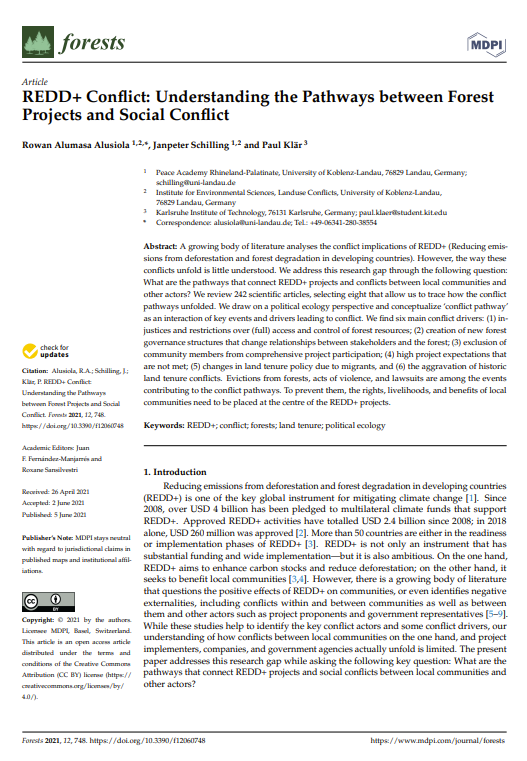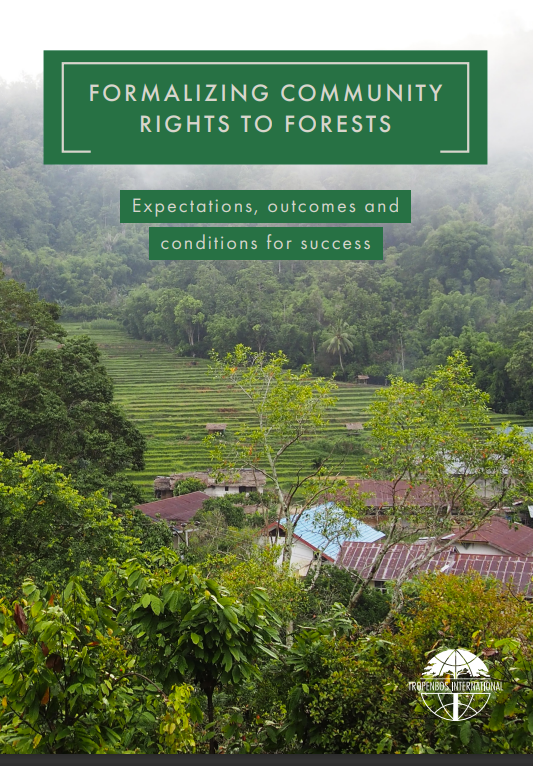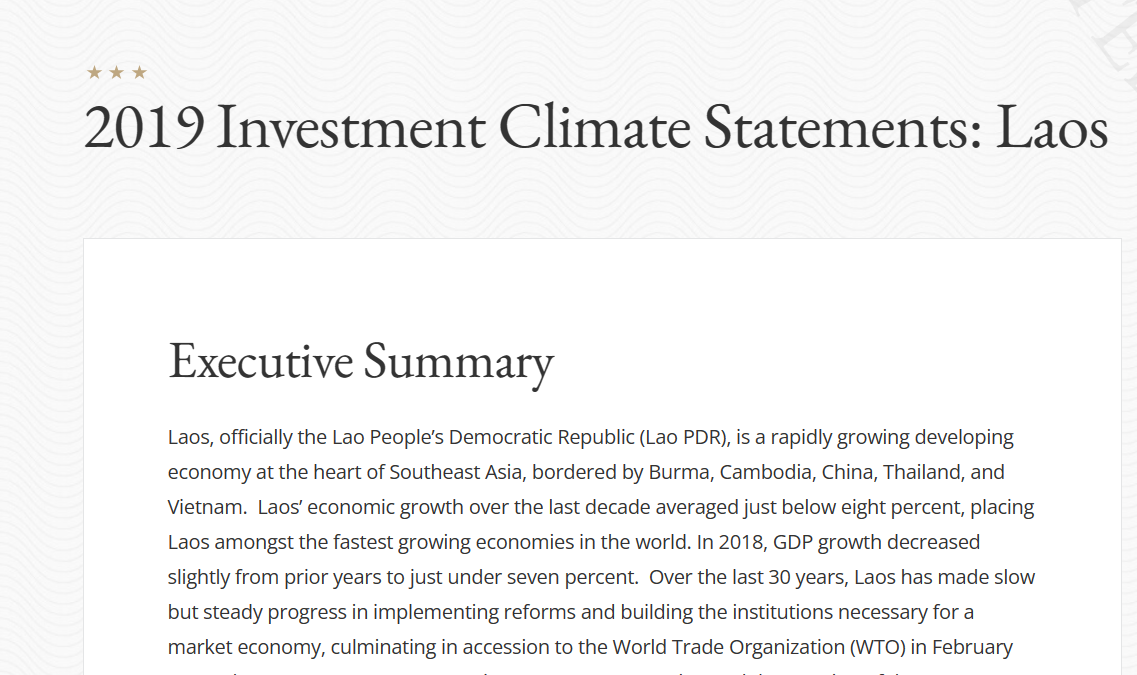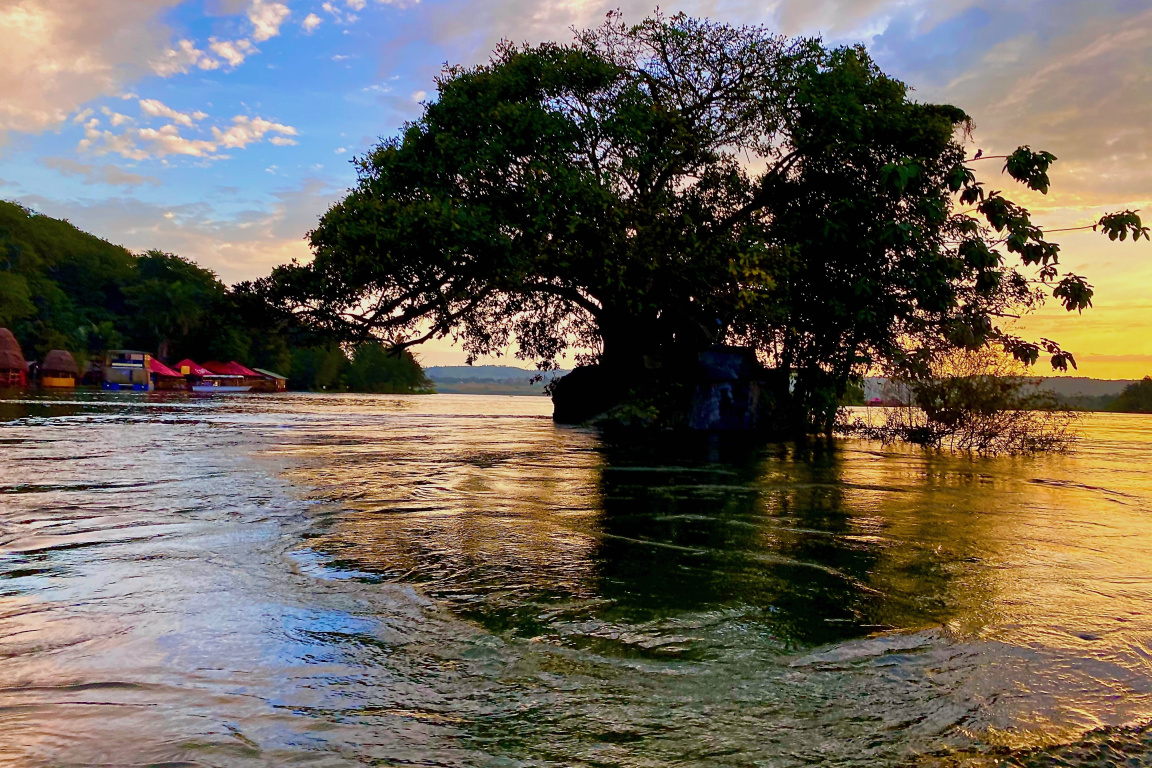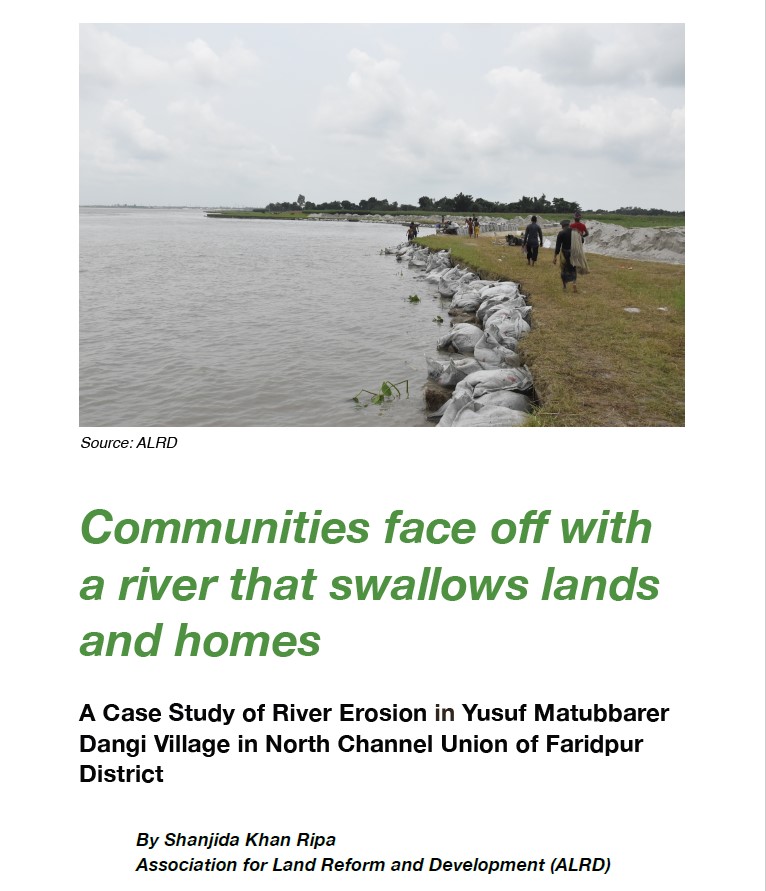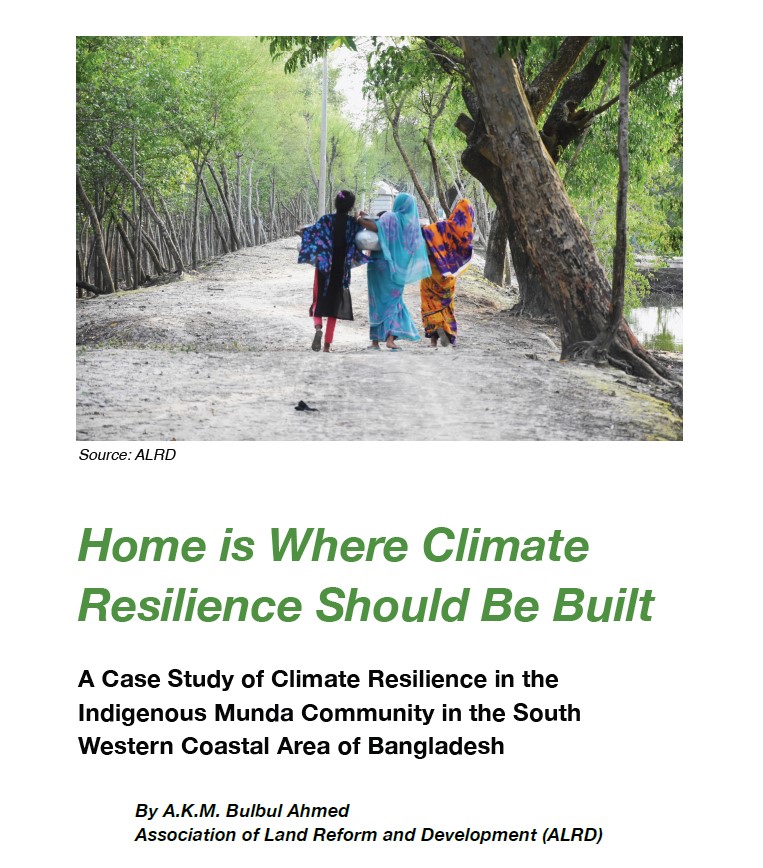
Topics and Regions
Landpages.co.ke is a medium of passing this message.
Details
Public Email
Location
Contributions
Displaying 131 - 140 of 740REDD+ Conflict: Understanding the Pathways between Forest Projects and Social Conflict
: A growing body of literature analyses the conflict implications of REDD+ (Reducing emissions from deforestation and forest degradation in developing countries). However, the way these conflicts unfold is little understood. We address this research gap through the following question: What are the pathways that connect REDD+ projects and conflicts between local communities and other actors? We review 242 scientific articles, selecting eight that allow us to trace how the conflict pathways unfolded.
Formalizing community rights to forests: Expectations, outcomes and conditions for success
In recent years, the call of civil society organizations to formalize rights of local communities and Indigenous Peoples to forests has been growing louder. They argue that formalizing local forest rights will have positive outcomes for livelihoods as well as forest conservation. In response to these calls, many governments have started forest reforms. This has become known as the forest tenure transition.
Her Land. Her Rights: Advancing gender equality to restore land and build resilience
This policy brief highlights the critical role of gender-responsive approaches to land tenure that empower women and accelerate the implementation of land restoration commitments that build community resilience. It examines how greater tenure security for women and girls can lead to a more equitable and sustainable land management. The brief builds upon the United Nations Convention to Combat Desertification (UNCCD) 2018–2030 Strategic Framework and its Gender Action Plan adopted in 2017.
Addressing land corruption for climate justice
Land corruption seriously threatens efforts to fight climate change and achieve a fair energy transition. By undermining climate programmes, projects and practices, it fuels increased carbon emissions and negative climate outcomes. It weakens tenure security and contributes to human rights violations. By channelling funds and resources towards elites, and supporting harmful or poorly managed projects, land corruption also erodes the legitimacy and credibility of the climate agenda, reducing popular support for vital action.
2019 Investment Climate Statements: Laos
Laos, officially the Lao People’s Democratic Republic (Lao PDR), is a rapidly growing developing economy at the heart of Southeast Asia, bordered by Burma, Cambodia, China, Thailand, and Vietnam. Laos’ economic growth over the last decade averaged just below eight percent, placing Laos amongst the fastest growing economies in the world.
Droits fonciers des populations autochtones et des communautés
Communities face off with a river that swallows lands and homes: A Case Study of River Erosion in Yusuf Matubbarer Dangi Village in North Channel Union of Faridpur District
This case study tells the story of Yusuf Matubbarer Dangi Village as a microcosm of the existential threat posed by river erosion and flooding to the country of Bangladesh. This village also encapsulates the experience of communities who are rendered landless when floods swallow up their properties and who then have to wait for new land to emerge from the river in the simultaneous erosion and accretion of land when the river swells.
Home is Where Climate Resilience Should Be Built: A Case Study of Climate Resilience in the Indigenous Munda Community in the South Western Coastal Area of Bangladesh
This case study challenges assumptions that disaster-hit communities that have lost their houses and possessions would willingly pack up and leave, believing that it is easier to migrate than to remain in their communities. However, for indigenous people like the Munda in Shyamnagar sub-district, migration is not the answer to achieving climate resilience. Because their lives are inextricably linked to their ancestral home, uprooting themselves exacts a toll on their identity and undermines the continuity of their culture and traditions.
Struggles of Munda people of Datinakhali Mundapara in Shyamnagar upazila (subdistrict) of Satkhira district in Bangladesh
This video is about the everyday struggles of Munda people of Datinakhali Mundapara in Shyamnagar upazila (subdistrict) of Satkhira district in Bangladesh. Munda is one of the indigenous communities in the country. Being on the frontline of the climate crisis, rising sea levels and salt infiltrates, 28 Munda families living in Datinakhali Mundapara are in dire straits due to landlessness, poverty, and climate change effects, with 10 Munda households already have migrated to other places.
Land Emerges, Land Disappears: Char Dwellers Continue Fighting for Land Tenure Security
This case study shows the challenge of securing land rights and land tenure security among a sector of Bangladesh’s landless poor whose claim to land is among the most tenuous in the world — the char dwellers. Their settlement on land that was created by river erosion and could at any time disappear in the same way provides a compelling case for the grant by the government of land rights that are not presently provided for by current land laws. The increasing risk of disasters, particularly flooding, threatens char dwellers equally if not more than other landless poor.

